IMDb RATING
7.4/10
6.3K
YOUR RATING
The history of the independent film company, The Cannon Film Group, Inc.The history of the independent film company, The Cannon Film Group, Inc.The history of the independent film company, The Cannon Film Group, Inc.
Menahem Golan
- Self - Cannon Chairman
- (archive footage)
Itzik Kol
- Self - Production Executive
- (archive footage)
Roni Ya'ackov
- Self - Production Executive
- (as Rony Yakov)
Yftach Katzur
- Self - Actor
- (as Yiftach Katzur)
- Director
- Writer
- All cast & crew
- Production, box office & more at IMDbPro
7.46.3K
1
2
3
4
5
6
7
8
9
10
Featured reviews
Walk Down Memory Lane (with plenty of explosions!)
For those of us that grew up in the VHS age of the 1980's, Cannon Films was a studio that provided us with much of our movie watching excitement. New Year's Evil (1980), Enter the Ninja (1981), Invasion U.S.A. (1985) and Cobra (1986) are just a few of the titles that helped propel Cannon Films in its heyday and is the focus of the new documentary Electric Boogaloo: The Wild, Untold Story of Cannon Films.
Israeli cousins Menahem Golan and Yoram Globus bought Cannon films for $500,000 in 1979 and created a film sausage factory where films were fast tracked to the screen based on high risk concepts or eye-catching movie posters ("At Cannon, 52 pictures a year wasn't enough").
Immediately, the two relatives saw a market for B-movie action films and started to build their empire on the backs of such franchises as Death Wish and various Chuck Norris vehicles such as Delta Force and the Missing in Action series.
Director Mark Hartley is no stranger to documenting film on film. Harley directed Not Quite Hollywood: The Wild, Untold Story of Ozploitation in 2008 and Machete Maidens Unleashed! in 2010. Hartley has a formula that works when exploring niche genres in film and stays the course with Electric Boogaloo: The Wild, Untold Story of Cannon Films.
Clips of films (everything from American Ninja, Texas Chainsaw Massacre II and Bloodsport are intertwined with interviews from familiar faces such as Molly Ringwald, Alex Winter, Dolph Lundgren and Richard Chamberlain. The doc takes us back to the early 80's and Hartley covers as many bases as possible when docu-reminiscing through such mindless yet wildly entertaining films that shaped many of our youths.
For a walk down memory lane, Electric Boogaloo: The Wild, Untold Story of Cannon Films is one hell of a fun ride. But it's a safe ride and one that doesn't give us any real deep deep deep insight into anything and just skims the surface of historical reference. When Electric Boogaloo does try and dive beyond an E: True Hollywood Story expose (such as a bit on diva Sharon Stone) it is met with a shrug of the shoulders and a 'Yea, not surprised' reaction from a target audience that was much more appreciative when the film simply highlighted films that we thought were even greater than the invention of sliced bread.
Electric Boogaloo: The Wild, Untold Story of Cannon Films is a tad overlong at 105 minutes but breathes new life into their decaying body with every newly introduced film that sparks memories of an age long gone. We do get educated on how now more popular directors got their start (Jean-Luc Godard with King Lear, Barbet Schroder with Barfly and John Cassavetes with Love Streams) with Cannon much like Roger Corman started the careers of Ron Howard, Martin Scorcese and James Cameron. And it was interesting to see the downfall of the company with big budget backed busts such as Superman IV: The Quest for Peace and Masters of the Universe.
Menahem Golan (who recently passed away in August 2014) and Yoram Globus did not participate in the documentary so any opinion of their business practices are told by the many interviewed stars and staff that were involved in their pictures including Cassandra Peterson (Elvira), Bo Derek, Michael Dudikoff and Elliot Gould.
Electric Boogaloo: The Wild, Untold Story of Cannon Films felt formulaic. It went through the motions and tired harder to tap into our memories than it did trying to tap into the backlots and secrets surrounding the studio (after all, it is titled 'The Wild, Untold Story'). Still, for someone who has seen every one of the films that was displayed on screen – and some, multiple times - Electric Boogaloo: The Wild, Untold Story of Cannon Films was like putting on your favorite pair of shoes that have long outlived their usage date. It had me reaching into my VHS collection to re-screen films I have not paid attention to in decades. And for that, Mark Hartley deserves credit.
www.killerreviews.com
Israeli cousins Menahem Golan and Yoram Globus bought Cannon films for $500,000 in 1979 and created a film sausage factory where films were fast tracked to the screen based on high risk concepts or eye-catching movie posters ("At Cannon, 52 pictures a year wasn't enough").
Immediately, the two relatives saw a market for B-movie action films and started to build their empire on the backs of such franchises as Death Wish and various Chuck Norris vehicles such as Delta Force and the Missing in Action series.
Director Mark Hartley is no stranger to documenting film on film. Harley directed Not Quite Hollywood: The Wild, Untold Story of Ozploitation in 2008 and Machete Maidens Unleashed! in 2010. Hartley has a formula that works when exploring niche genres in film and stays the course with Electric Boogaloo: The Wild, Untold Story of Cannon Films.
Clips of films (everything from American Ninja, Texas Chainsaw Massacre II and Bloodsport are intertwined with interviews from familiar faces such as Molly Ringwald, Alex Winter, Dolph Lundgren and Richard Chamberlain. The doc takes us back to the early 80's and Hartley covers as many bases as possible when docu-reminiscing through such mindless yet wildly entertaining films that shaped many of our youths.
For a walk down memory lane, Electric Boogaloo: The Wild, Untold Story of Cannon Films is one hell of a fun ride. But it's a safe ride and one that doesn't give us any real deep deep deep insight into anything and just skims the surface of historical reference. When Electric Boogaloo does try and dive beyond an E: True Hollywood Story expose (such as a bit on diva Sharon Stone) it is met with a shrug of the shoulders and a 'Yea, not surprised' reaction from a target audience that was much more appreciative when the film simply highlighted films that we thought were even greater than the invention of sliced bread.
Electric Boogaloo: The Wild, Untold Story of Cannon Films is a tad overlong at 105 minutes but breathes new life into their decaying body with every newly introduced film that sparks memories of an age long gone. We do get educated on how now more popular directors got their start (Jean-Luc Godard with King Lear, Barbet Schroder with Barfly and John Cassavetes with Love Streams) with Cannon much like Roger Corman started the careers of Ron Howard, Martin Scorcese and James Cameron. And it was interesting to see the downfall of the company with big budget backed busts such as Superman IV: The Quest for Peace and Masters of the Universe.
Menahem Golan (who recently passed away in August 2014) and Yoram Globus did not participate in the documentary so any opinion of their business practices are told by the many interviewed stars and staff that were involved in their pictures including Cassandra Peterson (Elvira), Bo Derek, Michael Dudikoff and Elliot Gould.
Electric Boogaloo: The Wild, Untold Story of Cannon Films felt formulaic. It went through the motions and tired harder to tap into our memories than it did trying to tap into the backlots and secrets surrounding the studio (after all, it is titled 'The Wild, Untold Story'). Still, for someone who has seen every one of the films that was displayed on screen – and some, multiple times - Electric Boogaloo: The Wild, Untold Story of Cannon Films was like putting on your favorite pair of shoes that have long outlived their usage date. It had me reaching into my VHS collection to re-screen films I have not paid attention to in decades. And for that, Mark Hartley deserves credit.
www.killerreviews.com
A throwback to a vision of the future
In Tim Burton's Ed Wood, a cheapshot movie producer snorts at Ed's desire to create art on a shoestring. The irony is, of course, that however artistically credible he imagined himself, Ed Wood made junk anyway. There's a sweet spot where good intentions, lack of talent, and thriftiness meet, and Cannon Films regularly found it. The Asylum's mockbusters might be keeping the bad movie dream alive, but can you imagine a modern mini-studio greenlighting the likes of Superman, alongside Death Wish, alongside Shakespeare?
Cannon was set up in the 1960s but rose to prominence/notoriety in 1980 when it was sold to Israeli cousins Yoram Globus (the money man) Menahem Golan (the would-be moviemaker). This is where Mark Hartley's breakneck documentary joins the sordid story. Talking heads – directors, editors, and actors – provide snappy anecdotes and bitesized insights into the passion and incompetence of two upstarts who, for a time, upset the Hollywood establishment. And then spent $25m on an arm-wrestling movie.
Though remembered for Chuck Norris nonsense and some seriously ropey fantasy and sci-fi (Tobe Hooper's Lifeforce will make you question the value of cinema), at their peak Cannon were bashing out nearly 50 films a year. This left room for 'proper' movies from the likes of Franco Zeffirelli and Godfrey Reggio; Cannon even bagged an Oscar for Best Foreign Film at their mid-eighties peak. But for every Company of Wolves or Barfly there were five Charles Bronson Z-movies, so Cannon will always be remembered for the balderdash, churned out chiefly to take advantage of the burgeoning home video market.
Indeed, this is the perfect Eighties trash story, beginning with The Happy Hooker, the strangely apt story of a European prostitute coming to the US and sticking two fingers up to the Hollywood elite. The party ended with Cyborg in 1989, a Van Damme oddity which has little to do with cyborgs and whose creative failure rests partly on the shoulders of Albert Pyun, who would later find cinema's comic book nadir with his mouth-dryingly terrible Captain America. Cyborg was built with bits of Masters of the Universe, which gives us a clue as to the state of Cannon's finances at the turn of the decade. A brief 90s relaunch provided nothing of interest.
Perhaps there's a three-hour version of this documentary which delves into more depth and supposition about the essential culture clash that meant Globus and Golan failed spectacularly, time and time again, to grasp the mood of the nation they adored. But then the film would lose its briskness and humour, and Hartley's superb Uzi-editing would go to waste. It's a shallow documentary about men with shallow dreams, and it's enthralling for it.
The only real art to emerge from Cannon were exceptions that proved the rule. That rule being: Make 'em quick and make 'em cheap. By the time the bloated excess of Masters of the Universe was vomited into the multiplex (I recall that particular disappointment sorely) audiences expected more. Hartley's film may ultimately overstate the influence of Cannon – although with a new Terminator movie potentially about to join Jurassic World, Avengers, and Furious 7 at the top of the year's box office, the business model that spawned five Death Wishes and three Delta Forces does seem disturbingly prescient.
Cannon was set up in the 1960s but rose to prominence/notoriety in 1980 when it was sold to Israeli cousins Yoram Globus (the money man) Menahem Golan (the would-be moviemaker). This is where Mark Hartley's breakneck documentary joins the sordid story. Talking heads – directors, editors, and actors – provide snappy anecdotes and bitesized insights into the passion and incompetence of two upstarts who, for a time, upset the Hollywood establishment. And then spent $25m on an arm-wrestling movie.
Though remembered for Chuck Norris nonsense and some seriously ropey fantasy and sci-fi (Tobe Hooper's Lifeforce will make you question the value of cinema), at their peak Cannon were bashing out nearly 50 films a year. This left room for 'proper' movies from the likes of Franco Zeffirelli and Godfrey Reggio; Cannon even bagged an Oscar for Best Foreign Film at their mid-eighties peak. But for every Company of Wolves or Barfly there were five Charles Bronson Z-movies, so Cannon will always be remembered for the balderdash, churned out chiefly to take advantage of the burgeoning home video market.
Indeed, this is the perfect Eighties trash story, beginning with The Happy Hooker, the strangely apt story of a European prostitute coming to the US and sticking two fingers up to the Hollywood elite. The party ended with Cyborg in 1989, a Van Damme oddity which has little to do with cyborgs and whose creative failure rests partly on the shoulders of Albert Pyun, who would later find cinema's comic book nadir with his mouth-dryingly terrible Captain America. Cyborg was built with bits of Masters of the Universe, which gives us a clue as to the state of Cannon's finances at the turn of the decade. A brief 90s relaunch provided nothing of interest.
Perhaps there's a three-hour version of this documentary which delves into more depth and supposition about the essential culture clash that meant Globus and Golan failed spectacularly, time and time again, to grasp the mood of the nation they adored. But then the film would lose its briskness and humour, and Hartley's superb Uzi-editing would go to waste. It's a shallow documentary about men with shallow dreams, and it's enthralling for it.
The only real art to emerge from Cannon were exceptions that proved the rule. That rule being: Make 'em quick and make 'em cheap. By the time the bloated excess of Masters of the Universe was vomited into the multiplex (I recall that particular disappointment sorely) audiences expected more. Hartley's film may ultimately overstate the influence of Cannon – although with a new Terminator movie potentially about to join Jurassic World, Avengers, and Furious 7 at the top of the year's box office, the business model that spawned five Death Wishes and three Delta Forces does seem disturbingly prescient.
A nice look back at Cannon, heavy on the snark
Informative and enjoyable documentary about the rise and fall of Cannon Films, a beloved part of my youth. Cannon made many cheesy and low-brow movies and this doc covers most of them and, yes, insults them...a lot. I admit as a Cannon fan it bristled a bit at first but I know that their films were, more often than not, trash. But they were also, more often than not, entertaining trash. The tone of the documentary is lighthearted, with many people sharing their funny anecdotes about the crazy antics of Menahem Golan and Yoram Globus (particularly Golan). There are some nasty jabs here and there, with the Most Sour award going to former MGM exec Frank Yablans, who pulled no punches in what he thought of Cannon's output (Mr. Yablans passed away shortly after this was released). Most of the talking heads are behind-the-scenes types but there are many actors and directors also interviewed, including Molly Ringwald, Catherine Mary Stewart, Alex Winter, Franco Nero, Dolph Lundgren, Richard Chamberlain, Franco Zeffirelli, and Sybil Danning. Not a lot of time is spent on many of my favorite Cannon movies but that's to be expected given the amount of films they had to cover in the time they had. They did an admirable job of covering the major Cannon films and they told the story of Golan-Globus well. The ample use of film clips is appreciated, as is the brisk pace. I think it's something every Cannon fan should see, although be warned if you're sensitive or protective about their films you may be put off by some of it, such as "Bill S. Preston, Esquire" acting as though he has a leg to stand on commenting on Charles Bronson's acting ability. Minor annoyances aside, it's a fun look back at Cannon with some interesting trivia for those who may not be familiar with what went on during the making of some of their favorite '80s B movies.
A celebration of '80s excess
ELECTRIC BOOGALOO: THE WILD, UNTOLD STORY OF CANNON FILMS is a documentary that does exactly what it says on the tin. That is, to celebrate the wild heydays of Cannon Films, a 1980s production house who put out some of the biggest, silliest, cheesiest, and most effects-fuelled films of that decade.
It's a rise-and-fall tale, brought to live via copious clips and lots of interview footage with various stars, directors, and producers who were involved with the films themselves. Thus for a cinema fan - especially somebody who's seen a lot of the films, like myself - it's a real visual treat. The film is a celebration of the Golan and Globus approach - which is to churn out film after film, hoping one or two of them will be a success - and the eventual hubris which saw the company's downfall. It's constantly funny as well, which really helps.
It's a rise-and-fall tale, brought to live via copious clips and lots of interview footage with various stars, directors, and producers who were involved with the films themselves. Thus for a cinema fan - especially somebody who's seen a lot of the films, like myself - it's a real visual treat. The film is a celebration of the Golan and Globus approach - which is to churn out film after film, hoping one or two of them will be a success - and the eventual hubris which saw the company's downfall. It's constantly funny as well, which really helps.
Worth a look for any fan of The Cannon Groups' output.
Fairly interesting documentary charts the rise and fall of The Cannon Group, a company made popular by two Israeli cousins, Menahem Golan and Yoram Globus. For the most part, they didn't exactly make prestige films, but they did an uncanny job of cranking out scores of B pictures that were often quite entertaining, no matter if the level of quality wasn't the highest. After a number of years, they did leave an impression on the film industry, if only for their impressive knack for "pre-selling" movies, using no more than posters, titles, and concepts.
This reasonably entertaining production is from Mark Hartley, who's left his own indelible stamp on the industry by making these kinds of films; previously, he'd done documentaries on the cult and exploitation pictures of both Australia ("Not Quite Hollywood") and the Philippines ("Machete Maidens Unleashed"). Instead of having a narrator to sort of take us step by step through this tale, a series of sit down interviews play in quick succession, with various cast and crew of numerous Cannon efforts giving their thoughts on the movies that they made. Some of the interviews are quite engaging; people interviewed include Franco Nero, Sybil Danning, Laurene Landon (it's actually rather distressing seeing her mime setting fire to a copy of "America 3000"), Boaz Davidson, David Engelbach, Christopher Pearce, Richard Edlund, Tobe Hooper, Greydon Clark, Alex Winter, and others.
After "Electric Boogaloo" is over, one does feel that they've gotten a pretty vivid, "warts and all" picture of the Golan & Globus personalities. Golan was the real character: volatile, demanding, opinionated. Globus was the somewhat more restrained of the two, the one who handled more business oriented duties. Ultimately, their hubris caught up with them. Although they could on occasion produce something truly special ("Runaway Train"), they simply ended up getting too ambitious, and getting in over their heads.
Many of the interviewees do seem to hold Cannon product in quite a bit of contempt, which is unfortunate, because while much of it may not be Oscar baiting material, it was, most of the time, a good deal of fun. If you're like this viewer, The Cannon Group has given you many hours of viewing pleasure with their B grade action movies, thrillers, sci-fi, and horror features.
In the end, it's quite telling that Golan & Globus declined to participate in this documentary, instead beating it to the punch with their OWN non fiction feature titled "The Go Go Boys".
Seven out of 10.
This reasonably entertaining production is from Mark Hartley, who's left his own indelible stamp on the industry by making these kinds of films; previously, he'd done documentaries on the cult and exploitation pictures of both Australia ("Not Quite Hollywood") and the Philippines ("Machete Maidens Unleashed"). Instead of having a narrator to sort of take us step by step through this tale, a series of sit down interviews play in quick succession, with various cast and crew of numerous Cannon efforts giving their thoughts on the movies that they made. Some of the interviews are quite engaging; people interviewed include Franco Nero, Sybil Danning, Laurene Landon (it's actually rather distressing seeing her mime setting fire to a copy of "America 3000"), Boaz Davidson, David Engelbach, Christopher Pearce, Richard Edlund, Tobe Hooper, Greydon Clark, Alex Winter, and others.
After "Electric Boogaloo" is over, one does feel that they've gotten a pretty vivid, "warts and all" picture of the Golan & Globus personalities. Golan was the real character: volatile, demanding, opinionated. Globus was the somewhat more restrained of the two, the one who handled more business oriented duties. Ultimately, their hubris caught up with them. Although they could on occasion produce something truly special ("Runaway Train"), they simply ended up getting too ambitious, and getting in over their heads.
Many of the interviewees do seem to hold Cannon product in quite a bit of contempt, which is unfortunate, because while much of it may not be Oscar baiting material, it was, most of the time, a good deal of fun. If you're like this viewer, The Cannon Group has given you many hours of viewing pleasure with their B grade action movies, thrillers, sci-fi, and horror features.
In the end, it's quite telling that Golan & Globus declined to participate in this documentary, instead beating it to the punch with their OWN non fiction feature titled "The Go Go Boys".
Seven out of 10.
Did you know
- TriviaMichael Winner was going to be interviewed for the documentary, but he died before production started on it.
- Quotes
Roni Ya'ackov: She said, "Menahem, I can't do it. I'm dying." He said, "Do it... then die!"
- ConnectionsEdited from Omnibus: The Last Moguls (1986)
Details
Box office
- Gross worldwide
- $864
- Runtime
- 1h 46m(106 min)
- Color
- Aspect ratio
- 1.78 : 1
Contribute to this page
Suggest an edit or add missing content


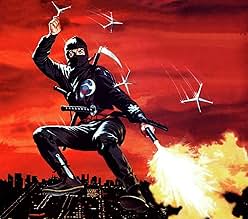

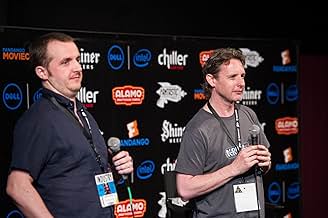
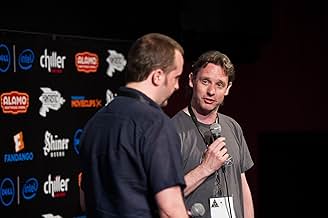
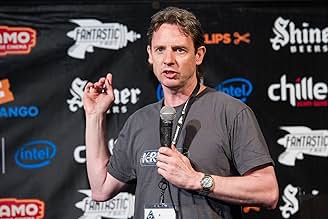
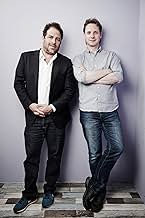
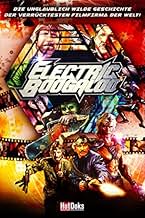
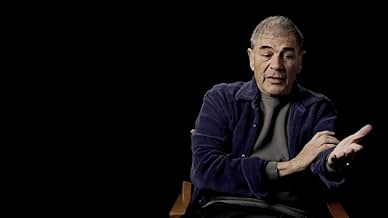
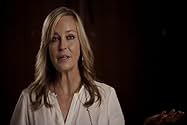
















![[REC] 4: Apocalypse](https://m.media-amazon.com/images/M/MV5BOTU3OTU2ODc5MF5BMl5BanBnXkFtZTgwNjY3MDY2MzE@._V1_QL75_UX140_CR0)







